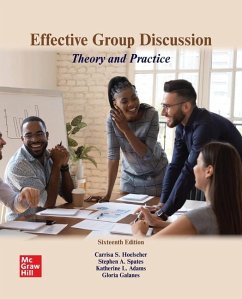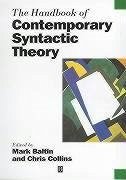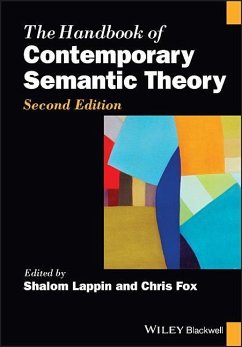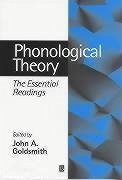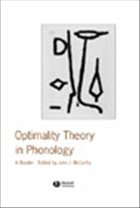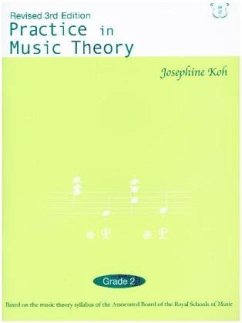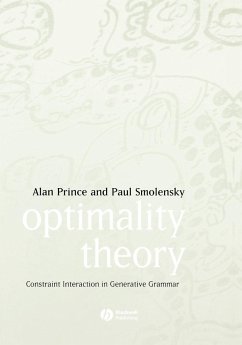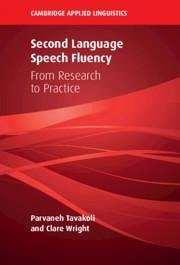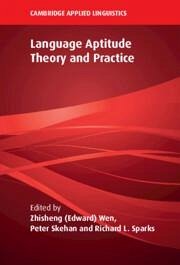
Language Aptitude Theory and Practice

PAYBACK Punkte
73 °P sammeln!
"The last few years have witnessed exponential growth in research output within the field of language aptitude. With contributions from an international team of leading experts, this volume provides the most comprehensive, authoritative and up-to-date overview of developments in language aptitude theory and practice. It addresses central and newly emerging methodological and theoretical issues, and revisits and re-examines the most popular language aptitude tests, including the most durable and innovative batteries. It also provides in-depth demonstrations of language aptitude research paradig...
"The last few years have witnessed exponential growth in research output within the field of language aptitude. With contributions from an international team of leading experts, this volume provides the most comprehensive, authoritative and up-to-date overview of developments in language aptitude theory and practice. It addresses central and newly emerging methodological and theoretical issues, and revisits and re-examines the most popular language aptitude tests, including the most durable and innovative batteries. It also provides in-depth demonstrations of language aptitude research paradigms, including well-established and emerging ones, scrutinizing them from multidisciplinary perspectives. Aptitude treatment interactions studies are reported and discussed, and pedagogical implications are provided, to illuminate theory construction, test development, policymaking, curriculum design and classroom practice. Seamlessly integrating theory, research, assessment and practice, it is essential reading for anyone seeking to learn more about language learning, training and teaching, and will further advance the research in this exciting, fast-paced field"--





